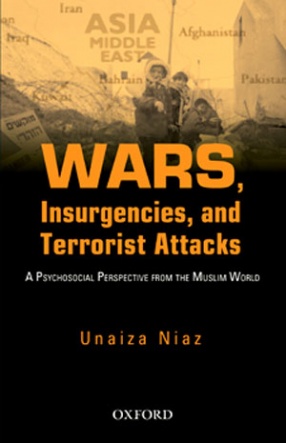Most wars, insurgencies, and terrorist attacks take place in the Muslim World. This is not a coincidence; understanding this phenomenon in its political and psychosocial perspectives is vital. An attempt has been made in this book to analyze these observable facts in a comprehensive, academic manner as to why such incidents are more prevalent in Muslim countries. It is crucial to understand the dynamics, the frustrations and the political systems in the Muslim World. Through scientific and professional literature available, the author attempts to scrutinize and synthesize these facts. History of terrorism whether in the past or present is clarified. Different theories of psychopathologies of terrorism and the theoretical, biological, social and psychological approaches are discussed in understanding these phenomena. The wars in the Muslim World in the twentieth and twenty-first centuries in Palestine, Iraq, Afghanistan, Pakistan, Bosnia, Chechnya, Algeria, Lebanon and struggle of Kashmir’s liberation are discussed; with a focus on the psychiatric aftermath on the civilians, and validated by guest authors from the Muslim World.
Chapter on insurgencies in the Muslim World focuses in particular on the plight of the civilian population in Pakistan’s FATA region (Federally Administered Tribal Areas, bordering Afghanistan), and the NWFP (now Khyber Pakhtunkhwa) of Pakistan. Sensitive attention is paid to vulnerable groups such as refugees, and children whose suffering can sometimes go unheard.
The book has a positive message, particularly with regard to the positive roles which could be enacted by mental health professionals. Mutual understanding itself represents an important step towards peace and reconciliation.





There are no reviews yet.